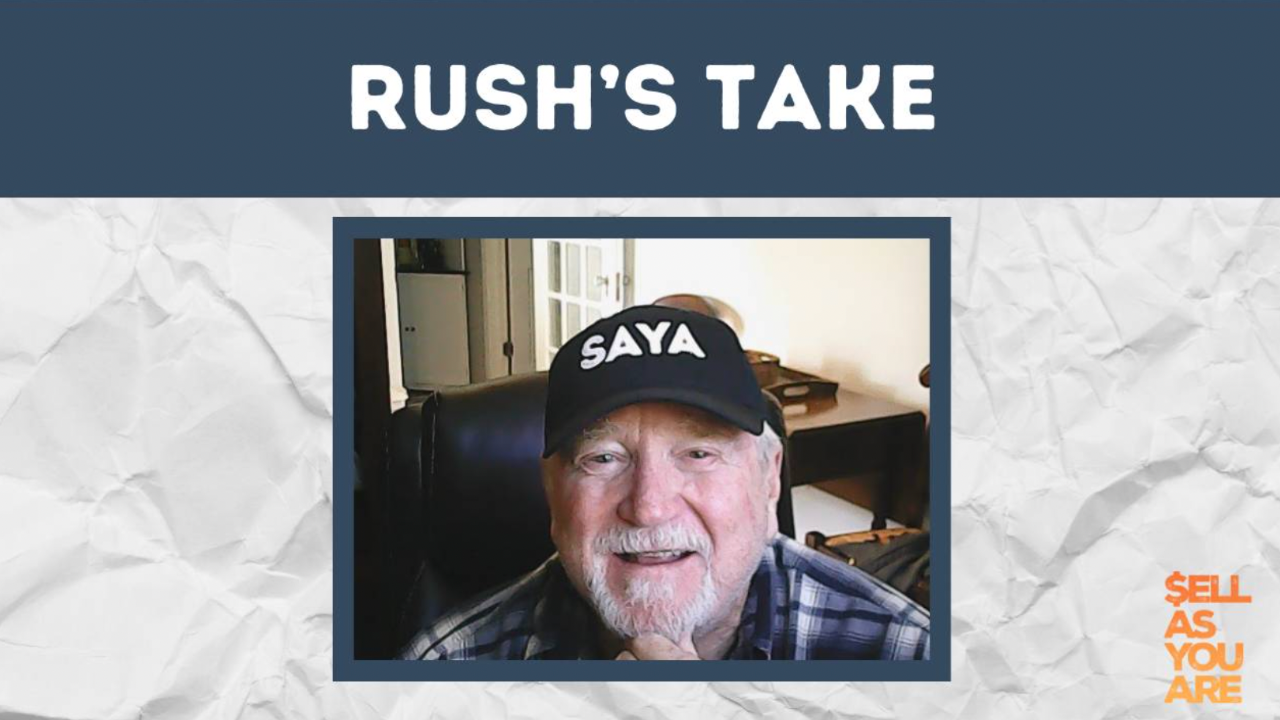Shoulda, Coulda, Woulda #11 with Rush
Jul 14, 2025
Shoulda’, Coulda’, Woulda’: B&R For Curmudgeons
You try a SAYA sale and it doesn't work the way it was supposed to.
- What actually happened and why?
- I wish I woulda’...!
- Now that it’s over, what could I do?
Send me a selling situation you’ve encountered that didn’t go the way you expected. I’ll attempt an autopsy what could help you and others to avoid those pitfalls. 📧 [email protected]
This came from a sales leader last month: “I don’t know why Jack spends so much time on making nice. Most of his debrief has to do with sharing information and stories with his suspect that sometimes he doesn’t get around to finding out if the suspect is a prospect. His assessment says he’s not very skilled in building relationships, and yet, he spends so much time just “chatting” with his suspect. What’s that about?”
Well…good SCW question!
And a couple of responses:
- Some folks have such a high personal need for approval bonding takes over their efforts.
- For decades traditional beliefs told the salesperson that “People buy from people they like!” (That certainly reinforces response #1)
- If you listen closely you’ll hear thoughts like
- “People do things for their reasons; not for yours.
- “All buyers buy solutions.”
- If one turns down the voice saying, “make them your friend” and turn up the voice that says “find out why they would buy”, you can minimize the “nice” talk and learn how to position the “kind” talk!
I became a believer out of necessity! If you don’t know this by now, there are some things you need to know about me!
- I’m not a people-person! Frankly, in the hierarchy of life forms I consider myself and other “humans” to be down the list, certainly below canines!
- I have NO need for approval and in the DiSC world, my “I” (Influencer) doesn’t register.
- I don’t like and can’t make small talk! (So much for standard B&R!)
- I am not by nature “nice”. I always attempt to be “kind”! (which sometimes sounds “un-nice”)
Now that you know those little facts, let’s talk about Relationship Building and Bonding and Rapport. I believe they have their place in the selling process.
- Building a relationship is important, no doubt! A sales professional MUST develop competencies which allow that to be time bound. The sales process should not be dependent upon a lengthy period developing a relationship. In your sales process, during the first meeting, those activities ought to take single-digit minutes.
- Further, assigned by a belief I have regarding the word “rapport (When one has a rapport with another the atmosphere is cleared to have a good conversation. Much like sorbet cleanses the palate during a meal, when moving from one dish to another, so the flavor of each is better appreciated.) a little B&R talk helps to clear the previous attitudes and after-burn from the suspect’s palate allowing them to focus on the matters at hand.
- Perpetual rapport could also be labeled “trust”. When you share trust, rapport is a given, and conversation can be limitless! Trust is the main ingredient involved in Adult conversation!
When 2 people meet for the 1st time, I believe that there must be a brief period of neutral dialogue between them, as they’ve not yet established trust. Therefore, the flavor of whatever previous events they’ve experienced can be put behind them. That must happen so they can both be totally present in the moment of their conversation.
That said, the B&R phase of the SAYA process can be brief and less contrived! Just tell the truth! Avoid looking at the picture on the desk and saying “Oh! What a great family!” Only to hear the response, “Yeah. That picture came with the frame!”
One more realization: We’re all looking for EBS (aka Equal Business Stature). I promise you, that won’t likely happen in that B&R phase, regardless of how “nice” you are and how many high school diplomas you share. But…as you enter the Discovery Step and use your expertise to navigate the DICE panels, the EBS monitor will go off the charts! Asking the right questions will help them realize you know and care about them, their truth and their problems!
The advice to the sales leader is to encourage Jack to limit his “small talk” to a few minutes. Don’t allow the chat to go into a rabbit hole designed to uncover as many links between the suspect and the salesperson as possible. Focus on moving through the early minutes of the sales call to the Expectations Check which will take you to Discovery and help you and the suspect get a better feeling for the presence of pain! The appearance of multiple DICE Panels in the dialogue will almost guarantee the building of a relationship and trust!